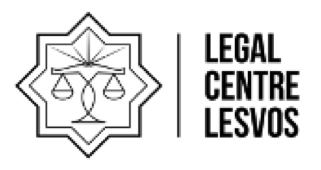
On 8 September 2020, the infamous Moria refugee camp in Lesvos, Greece burned to the ground, throwing fortress Europe’s policies of deterrence through immiserating conditions, border externalisation and ‘containment’ on the Aegean ‘hotspot’ islands back into the international spotlight. The fires came a week after a resident of the camp tested positive for COVID-19 and authorities responded by locking Moria down: effectively detaining around 12,000 people in unsanitary, inhuman, overcrowded conditions; at grave risk to their lives. In the days that followed, people who had been living in Moria camp and its surrounding olive groves were left in the streets, trapped between police and military blockades, without access to sufficient food, water, shelter, hygiene facilities or other basic necessities.
Instead of transferring people off the island, providing adequate accommodation or material assistance, the Greek state placed Lesvos under a state of emergency and dispatched riot police units from Athens to Lesvos, while armed far-right groups harassed migrants encamped on roadsides and police used teargas against them. Instead of heeding demands from solidarity movements for “No More Morias” (1) – that the Moria fires should mark a decisive break from fortress Europe’s violent and failed policies – the Greek state, with the material assistance (2) of the European Union and UNHCR (3), hastily constructed a new ‘Temporary Reception and Identification Centre’ on a site contaminated with lead, unfit for human habitation (4) and widely described as ‘Moria 2.0’.
Instead of seeing the fire for what it was – a disaster waiting to happen, the blame for which lay squarely at the door of the EU – in the weeks following the fire the Greek state arrested and charged six young Afghan migrants – the Moria 6 – with arson endangering human life and membership of a criminal group. Five of the Moria 6 were minors when arrested, although only two are recognised as such by the Greek state. Despite an abject lack of any credible evidence against them, the two recognised minors of the Moria 6 – A.A. and M.H. – were convicted of arson and sentenced to 5 years in prison following a trial on 9 March 2021 which constituted a gross miscarriage of justice (5).
It is clear that the guilt of the Moria 6 was determined by the Greek State from the moment of their arrest. In violation of the right to a fair trial, and of the fundamental principle that defendants are presumed innocent until proven guilty, the Greek Minister of Migration and Asylum stated in an interview given on 16 September 2020 – a week after the fire – that “the camp was burned by six Afghani refugees who have been arrested” (6). Moreover, the prosecution of the Moria 6 appears to form part of a systematic effort to crush any resistance to Europe’s border regime through collective punishment, by arbitrarily arresting and pressing criminal charges against migrants following any form of migrant-led resistance – such as in the case of the Moria 35 (7).
In January 2021, 32 of the Moria 35 who had been convicted in 2018 were finally cleared of all charges, which only confirms that the ordeal they faced, over more than 3.5 years of their lives, was a gross miscarriage of justice from the outset – as the Legal Centre Lesvos and the solidarity movement built around the case had protested all along. We refuse to accept that this will also be the fate of the Moria 6. While it seems the odds are already stacked against these young men, we know that international solidarity has always been our best weapon against Europe’s border imperialism and its strategies of collective punishment of migrants.
For this reason, the Legal Centre Lesvos is seeking international trial observers to oversee proceedings in the trial of the remaining four of the Moria 6. Their trial will take place on 11 June in Chios, Greece. If you are interested in applying to act as a trial observer, please send your CV and a brief cover letter to info@legalcentrelesvos.org explaining why you are interested. Unfortunately, Legal Centre Lesvos is unable to cover the travel costs of trial observers. Information on COVID-19 related requirements for entry into Greece can be found at https://travel.gov.gr/.
Priority will be given to:
- Members of IADL / ELDH affiliated national associations
- Lawyers / Academics with expertise in Asylum and/or Criminal law
- Individuals with experience in trial observation
- Fluency in English and/or Greek
To find our more about the work of Legal Centre Lesvos and the case of the Moria 6, go to https://legalcentrelesvos.org/
Contact: info@legalcentrelesvos.org
Follow us on Facebook, Twitter and Instagram for updates
UPDATE (Göttingen/Chios/Lesvos, 13.06.2021) Yesterday, Saturday 12 June, four teenage asylum seekers were found guilty of ‘arson with risk to human life’ and sentenced to ten years imprisonment at Chios court after the fire in Lesvos’ Moria camp. Despite documents proving that three of the accused were minors at the time of arrest, they were tried as adults. Two of the six defendants had already been sentenced in March at the juvenile court in Lesvos. Check https://freethemoria6.noblogs.org/ for further developments
(1) https://www.facebook.com/LesvosLegal/posts/3525608360811185 (2) https://ec.europa.eu/home-affairs/sites/default/files/what-we-do/policies/european-agenda-migration/202011_managing-migration-eu-financial-support-to-greece_en.pdf (3) https://www.unhcr.org/news/briefing/2020/9/5f6073db4/unhcr-scales-immediate-shelter-support-moria-asylum-seekers-urges-long.html (4) https://legalcentrelesvos.org/2021/02/17/greek-authorities-must-urgently-transfer-vulnerable-migrants-to-the-mainland-in-accordance-with-their-own-laws/ (5) https://legalcentrelesvos.org/2021/03/09/justice-for-the-moria-6/ (6) https://www.youtube.com/watch?v=52lWG65Wbq4 (7) https://legalcentrelesvos.org/2021/03/09/justice-for-the-moria-6/